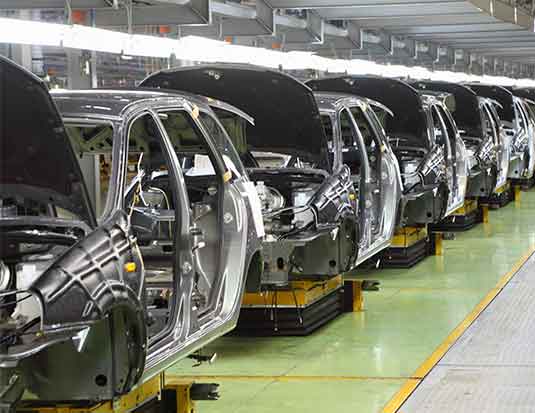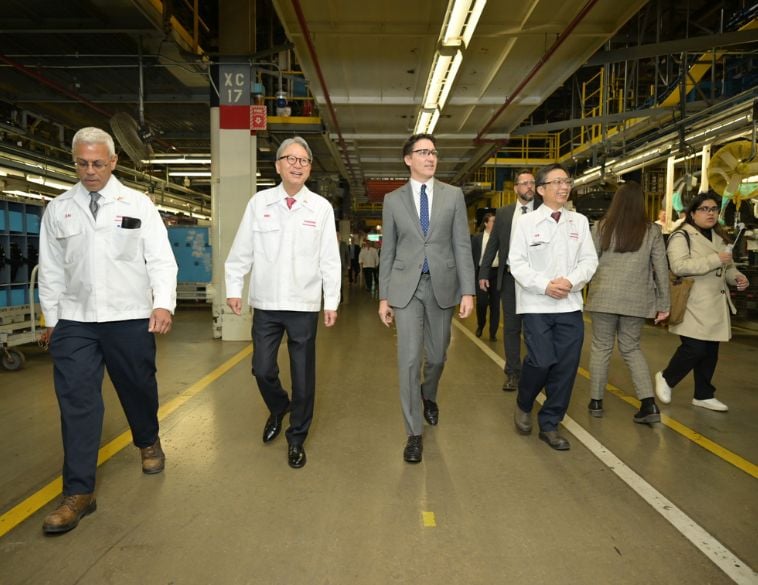Fiat Chrysler Automobiles N.V. submitted a proposal for a transformative merger with Groupe Renault to create a preeminent Global Automotive Group.
Fiat Chrysler Automobiles (FCA) delivered a non-binding letter to the Board of Groupe Renault proposing a 50/50 merger of both their businesses, with a balanced governance structure.
The proposal prompts operational discussions to identify products and geographies where they could collaborate, mainly as they develop and commercialize new technologies. Together, the companies would create the third largest global OEM with 8.7m vehicle sales annually, and a strong market presence in key regions and vehicle segments, like EV technologies, premium brands, SUVs, pickup trucks, and light commercial vehicles.
As a global automaker, benefits of the proposed transaction are not predicated on plant closures but would be achieved through capital efficient investment in common global vehicle platforms, architectures, powertrains, and technologies
Potential benefits
A collaboration of the two companies would:
- Improve capital efficiency, revenue, volume, profits, and technology–the combined company’s annual revenues would be nearly €170 billion with an operating profit of more than €10 billion and net profit of more than €8 billion;
- Maintain strong combined balance sheets allowing for flexible capital allocation and robust dividend policy;
- Improve the speed of product development;
- Utilize scale, expertise, and resources to navigate the rapidly changing automotive industry;
- Create new opportunities for employees of both companies and key stakeholders;
- Help seize new opportunities within areas like connectivity, electrification, and autonomous driving;
- Bring together broad and complementary strengths, like FCA’s focus on autonomous driving and Renault’s experience in EV technology, or FCA’s presence in North and Latin America and Renault’s presence in Europe, Russia, Africa, and the Middle East;
- Create a strong brand and geographic presence and important strengths in transforming technologies;
- Create a broad brand portfolio that would provide full market coverage with a presence in all key segments, from luxury to mainstream, as well as commercial;
- Be highly value accretive for both FCA and Groupe Renault shareholders, delivering in excess of €5 billion of estimated annual run rate synergies, incremental to existing Renault-Nissan-Mitsubishi Alliance (Alliance) synergies;
- Provide significant benefits to the other Alliance partners including ~€1 billion of additional estimated run-rate synergies; and
- Maintain shared benefits with 50% by current FCA shareholders and 50% by current Groupe Renault shareholders.
Terms and conditions
Under the terms of the proposal, the shareholders in each company will receive an equivalent equity stake in the combined company. The combination of the companies will be a merger transaction under a Dutch parent company. The board would be composed of 11 members, with the majority being independent, four members from each company, and one nominee from Nissan. Once the companies have been formed, there will be no carrying over existing double votes. Each shareholder will have an opportunity to earn loyalty voting rights from the completion of the transaction under a loyalty voting period. And the parent company would be listed on the Borsa Italiana (Milan), Euronext (Paris) and the New York Stock Exchange.
Moreover, alongside a 50/50 merger, before the transaction closed, FCA would receive a dividend of €2.5 billion to mitigate the disparity in equity market values, and prior to closing, there would be a distribution of Comau’s shares to FCA’s shareholders or an incremental €250 million dividend if the Comau spin-off does not occur.
With regards to synergies, which would arise from the convergence of platforms, the consolidation of powertrain and electrification investment, and the benefits of scale. FCA predicts that about 90% of synergies would come from purchasing savings (~40%), R&D efficiencies (~30%), and manufacturing and tooling efficiencies (~20%). The estimated savings would include the potential to reduce the combined number of vehicles platforms by approximately 20% and engine families with 30%.
The combining of the industries has not occurred yet. Final reviews and approval will be conducted by FCA and group Revolt Bros. If both companies decide to move forward with this, the new company would be subject to customary closing doors.
Completion of the proposed combination would also be subject to customary closing conditions, including approval by each company’s shareholders, as applicable, and the satisfaction of antitrust and other regulatory requirements.



